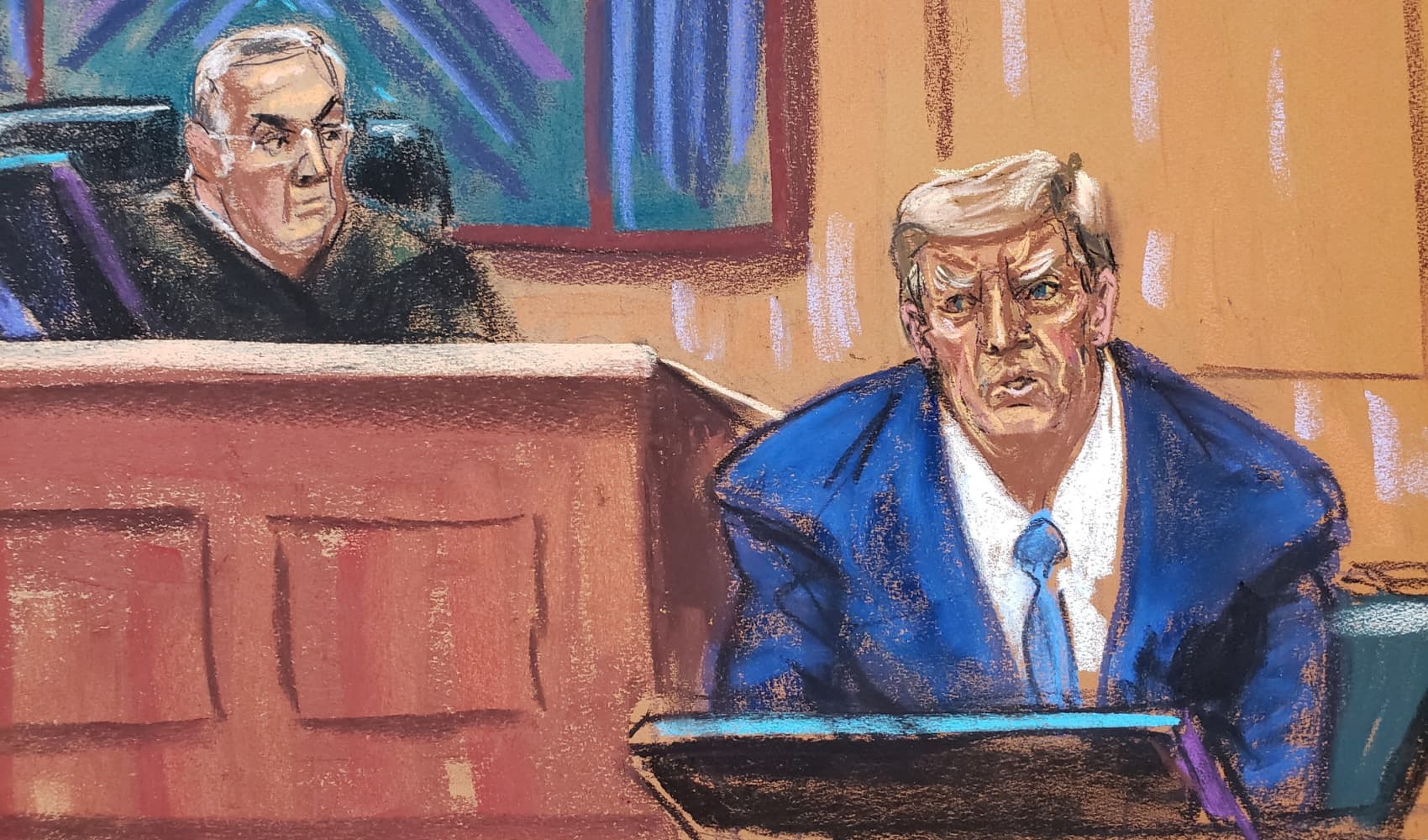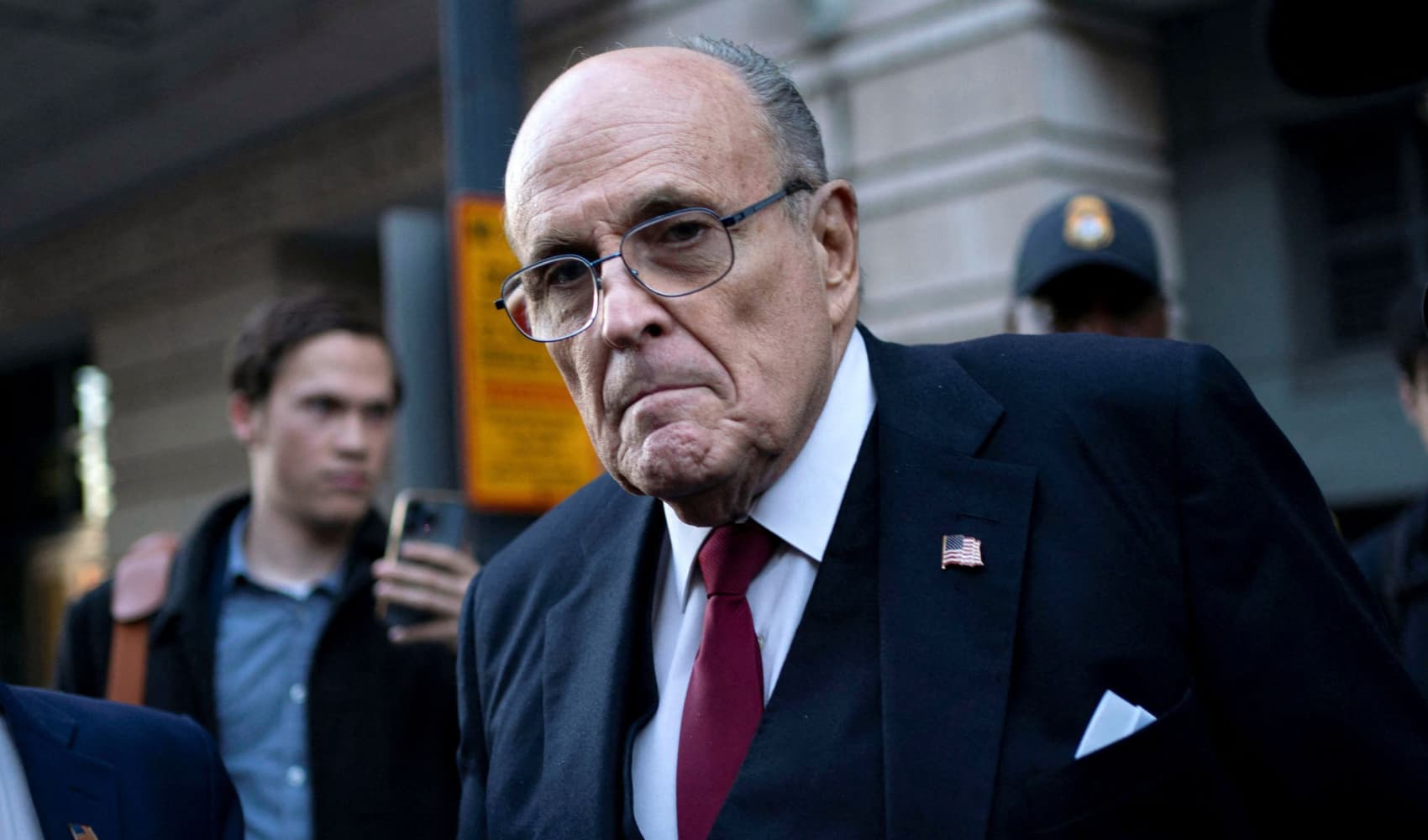What to Know
- Closing arguments are set to begin in the defamation case against Donald Trump a day after the former president left a Manhattan courtroom fuming after his 3-minute testimony gave him little time to refute a writer’s sexual abuse claims
- On Friday, lawyers on both sides will get to sum up their case for nine jurors who will start deliberating later in the day
- The jury will decide what, if anything, Trump owes magazine columnist E. Jean Carroll. A jury last year found Trump sexually abused her in spring 1996 in the changing room of a luxury Manhattan department store
“Donald J. Trump thinks the rules don’t apply to him.”
The lawyer for E. Jean Carroll delivered those words on Friday in her closing argument at Donald Trump’s sex defamation trial, prompting a dramatic departure from the former president.
“The record will reflect that Mr. Trump just rose and walked out of the courtroom,” said Judge Lewis Kaplan.
Trump’s exit comes a day after he left the New York courtroom fuming that he hadn’t been given an opportunity to refute sexual abuse accusations.
On Friday, lawyers will sum up their cases for nine jurors who will start deliberating later in the day whether Carroll, a former advice columnist, is entitled to more than the $5 million she was awarded in a separate trial last year.
The final remarks from the lawyers come a day after Trump managed to sneak past a federal judge’s rules severely limiting what he could say during his turn on the witness stand, which wound up lasting just 3 minutes.
“She said something that I considered to be a false accusation,” Trump said, later adding: “I just wanted to defend myself, my family and, frankly, the presidency.” The jury was told by Judge Lewis A. Kaplan to disregard both remarks.
A different jury last May concluded that Trump sexually abused Carroll in the spring of 1996 in the changing room of a luxury Manhattan department store. It also found that he defamed her in 2022 by claiming she made up the allegation to sell a memoir.
Trump, the Republican frontrunner in this year’s presidential election, has long regretted his decision not to testify at that trial, blaming his lawyers for bad advice.
The jury in this new trial has been told that it is there for a limited purpose.
Kaplan will instruct jurors on the law before they deliberate, telling them that they must accept the verdict reached last year and only determine whether additional damages are owed for statements Trump made in June 2019 while he was president. The claims had been delayed for years by court appeals.
Carroll’s lawyers seek over $10 million in compensatory and punitive damages. Trump attorney Alina Habba has argued against damages, saying Carroll’s association with Trump had given her the fame she craved and that death threats she received cannot be blamed on Trump’s remarks.
Carroll, 80, testified at last year’s trial that she had a chance encounter with Trump at a Bergdorf Goodman store that was flirtatious and lighthearted until Trump cornered her in a changing room. Her claim that Trump raped her was rejected by last year’s jury, though it agreed she was sexually abused.
Last week, Carroll testified that her career was shattered by Trump’s statements about her claims over the last five years, most recently on the campaign trail for president. She said she bought bullets for a gun she inherited from her father and installed an electronic fence around her home.
On Thursday, Trump testified that he stood “100%” behind comments he made in an October 2002 deposition in which he denied Carroll’s accusations, calling her “sick” and a “whack job.”
Donald Trump
Kaplan intends to instruct jurors Friday that the jury last year concluded that Trump had digitally penetrated Carroll in the department store, but the same jury did not find that he had raped her, according to how rape is defined under New York state law.
Trump attorney Michael Madaio argued at a conference Thursday between lawyers and the judge that Kaplan should not tell jurors specifically what sexual abuse Carroll had alleged because it was “completely unnecessary and inflammatory.”
The judge rejected the argument.
The Associated Press typically does not name people who say they have been sexually assaulted unless they come forward publicly, as Carroll has done.



0 Comments